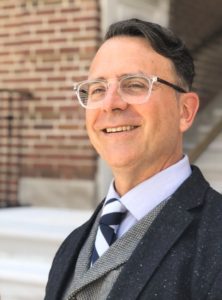Bona Verba from the Headmaster
One important role of CLASSICAL’s school leadership is to ensure a quality education that aligns with the mission and core virtues of our school. This commitment forms the bedrock of every decision we make as dedicated educators. To preserve the integrity of our mission and make judicious use of our school’s finite resources, it is incumbent upon us as school leaders to have the courage to say “no” when it is prudent to do so. While the word “no” may appear as a mere refusal or dismissal, it plays a pivotal role in safeguarding the integrity of our educational mission and upholding our commitment to excellence.
CLASSICAL boasts a well-defined mission, one that guides our every decision and action. By exercising the power of “no” when faced with requests that diverge from our mission, we uphold the cardinal principles that define our school. This ensures that our resources are channeled toward activities and initiatives that directly contribute to the educational growth and development of our students.
Furthermore, our school resources — time, space, funds, personnel, and more — are finite and must be allocated judiciously, in a manner that does justice to our students and their education. Saying “no” empowers us to prioritize initiatives that align with our educational priorities and promise the greatest impact. Saying “no” often keeps our children safe in and around our building; it sometimes frees our personnel to focus on what is more essential to our mission.
It is worth acknowledging that every decision carries an opportunity cost, as the pursuit of one idea often necessitates forgoing other opportunities. By exercising prudence and thoughtfully considering requests, we weigh the opportunity cost and select the most promising options, demonstrating our commitment to prudence and justice in resource allocation. We simply cannot pursue every idea – whether it’s in the realm of athletics, field trips, clubs, or even carline.
Saying “no” is not about dismissing ideas or concerns; rather, it is about respecting the boundaries of our educational framework. A school operates as a complex ecosystem, where each decision sends ripples throughout the entire community. By respectfully declining requests that may disrupt this delicate balance, we ensure a cohesive and harmonious learning environment, even if this harmony is not immediately apparent to those who may lack perspicacity in a given situation. Our commitment to justice ensures that the needs of all – students, faculty, and parents – are responsibly balanced.
As school leaders, we serve as role models for our students and the broader community. The ability to say “no” when necessary reinforces the importance of critical thinking, principled decision-making, and commitment to one’s mission — qualities we hope to instill in our students.
The power to say “no” is exercised as a strategic and thoughtful decision, one that calls upon us to weigh the potential impact of each request against our mission, core virtues, educational objectives, and available resources. By embracing the power of “no,” we ensure that our school remains dedicated to developing the minds and nurturing the hearts of the students entrusted to our care.

Mr. Michael Rose
Meet the Headmaster
Mr. Rose has taught various courses at Brown University, Cincinnati Moeller, and The Summit Country Day School. As a part of his degree work in education, Mr. Rose’s research interests included the Great Books curriculum, the Paideia teaching method, and the “effects of emerging digital technology on student reading, writing, and researching.” Read More

